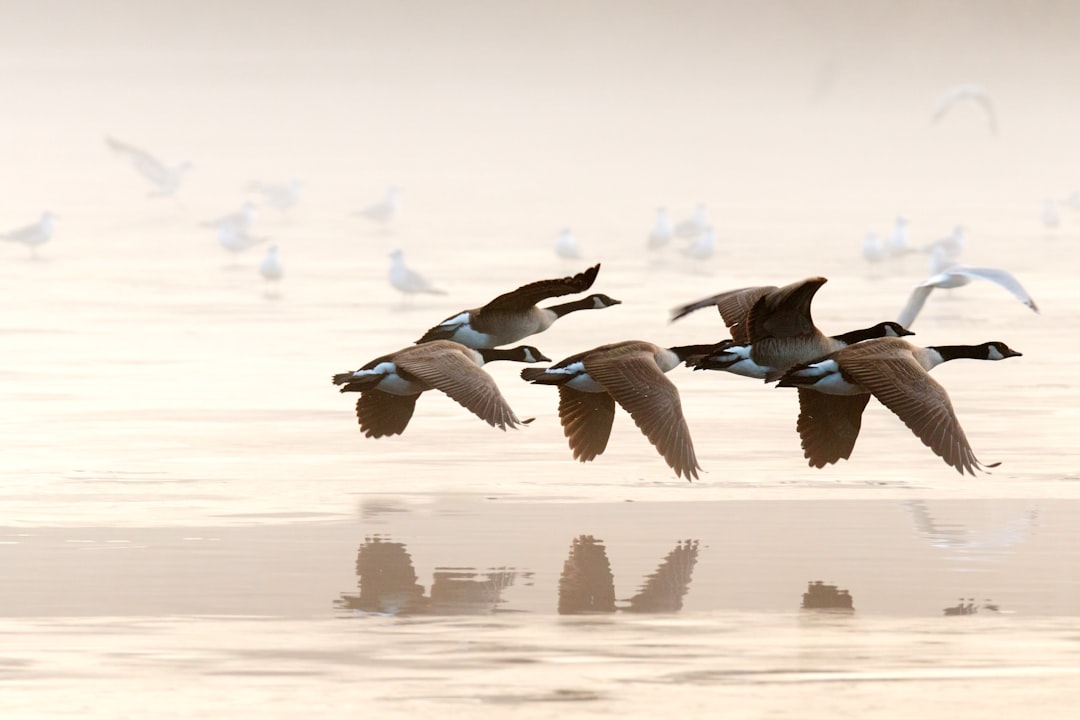The World Offers Itself to Your Imagination
What Mary Oliver's 'Wild Geese' can teach writers about not giving up
Photo by Charles Jackson on Unsplash
There are so many writers out there; so many writers aspiring to publication, so many writers pushing boundaries, climbing out of the constraints of the traditional, so many writers climbing up, up, up towards prizes and winning and poetry collections and debut books. It can be off putting if you yourself are a writer who is not competitive, or are a writer from a non traditional writing background where the rules of the literary world seem undefined and confusing, or if you are at the beginning of your long journey to discovering your own voice. How do you keep writing?
Mary Oliver’s poem Wild Geese is like a quiet place to come and refresh yourself. Each sentence could be a mantra in its own right, but tied together it is a cool corridor to pass through on the way to your place in the world.
Wild Geese
Mary Oliver
You do not have to be good.
You do not have to walk on your knees
for a hundred miles through the desert repenting.
You only have to let the soft animal of your body
love what it loves.
Tell me about despair, yours, and I will tell you mine.
Meanwhile the world goes on.
Meanwhile the sun and the clear pebbles of the rain
are moving across the landscapes,
over the prairies and the deep trees,
the mountains and the rivers.
Meanwhile the wild geese, high in the clean blue air,
are heading home again.
Whoever you are, no matter how lonely,
the world offers itself to your imagination,
calls to you like the wild geese, harsh and exciting -
over and over announcing your place
in the family of things.This has to be one of the most famous Mary Oliver poems. It also happens to be one of my favourite Mary Oliver poem. Last night, after a challenging day (unexpected overdue tax bill hell) I went out with the dog for a walk. A thick sea fret had rolled into the village. The world was a place of malleability and strangeness. The sound became dulled. A tractor was rumbling across a field, only visible by its headlights. The world was shrunk to the moment and what I could see in my own small sphere of existence. Nothing else entered the sphere. I could see no one outside of the sphere. As we were heading home we turned into the lane and I heard, in the distance, the unmistakable calls of geese in flight. I stopped, stood still and waited until the geese came over our heads, appearing out of the mist in a huge V, their wings beating with a soft, dull feathered sound. Immediately the first line of Mary Oliver’s poem sprang to my mind, and into my mouth. I whispered it to myself You do not have to be good. This is a poem that allows the reader to take from it what they need at any point. It has been my mantra when I have tried to address my chronic people pleasing, my anxiety, my terrible fear of not fitting in, of not being good enough. Right now, as I panic through the edits of the book, and scrabble to find work to pay bills at the same time, the poem is telling me that I can do this, I do not have to be perfect, I just have to use my gift, I just have to keep going, I do not have to compare myself to all the people who seem to be doing so much better than me. I just have to remain in my sea-fret sphere, working to my own schedule, and the geese will arrive.
Easier said than done.



